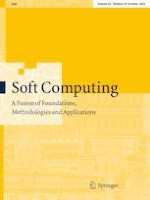10.08.2022 | Data analytics and machine learning
OCFSP: self-supervised one-class classification approach using feature-slide prediction subtask for feature data
Erschienen in: Soft Computing | Ausgabe 19/2022
EinloggenAktivieren Sie unsere intelligente Suche, um passende Fachinhalte oder Patente zu finden.
Wählen Sie Textabschnitte aus um mit Künstlicher Intelligenz passenden Patente zu finden. powered by
Markieren Sie Textabschnitte, um KI-gestützt weitere passende Inhalte zu finden. powered by
